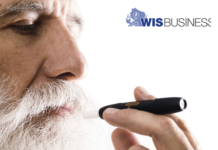A dairy science researcher at UW-Madison is exploring how new technologies can be leveraged on the farm to improve yields and track illnesses.
Joao Dorea will be an assistant professor at the university starting in July, but he’s been working on campus for three years as a researcher. In his time in Madison, Dorea has focused on the use of data analysis with automated video monitoring, which could help dairy farmers track animal behaviors and movements.
Farmers can use fully automated smart cameras that recognize when calves are standing, lying down, eating or drinking, helping to spot unusual patterns.
“Animals change behavior when they’re sick,” he said. “There’s an increase in lying-down time, a reduced number of steps. We need to be able to pick up these little differences. It’s hard to spot in a large operation. By the time the farmer notices, it might be too late.”
But if the farmer uses an automated video analysis system, variations in behavior can be highlighted and action can be taken earlier.
Aside from behavior monitoring, Dorea and fellow researchers are also tracking calves’ growth with cameras. They hope to connect early-life growth patterns with future milk yield and reproductive success.
Another research project he’s involved with aims to improve milk quality. According to a release from UW-Madison, scientists can determine how much feed a cow has consumed by analyzing the spectrum of light reflected by the milk it produces. Understanding this better could help farmers figure out which of their cows are the highest performers.
“With all the new technologies available there’s a huge push for data scientists, and dairy science is no exception,” said Victor Cabrera, a UW-Madison professor who helps improve decision-making for dairy farm managers. He also chairs the committee that hired Dorea.
“Applying these technologies requires two kinds of expertise. You need to understand the sensory technology that collects data, such as imaging, analyzing milk or monitoring the cow’s activity,” Cabrera said. “But this data doesn’t have value until you analyze it.”
Dorea first came to Madison in 2016 after working several years in Latin America for DSM, a global company supplying animal health and nutrition products. His interest in animal science started back home in Brazil, where his family operates a 250-cow grazing farm.
“I’m interested in the same biological questions that I had before,” he said. “Now, with the amount of data that is being generated, I’m able to apply more analytics and quantitative analysis to better answer these questions.”





